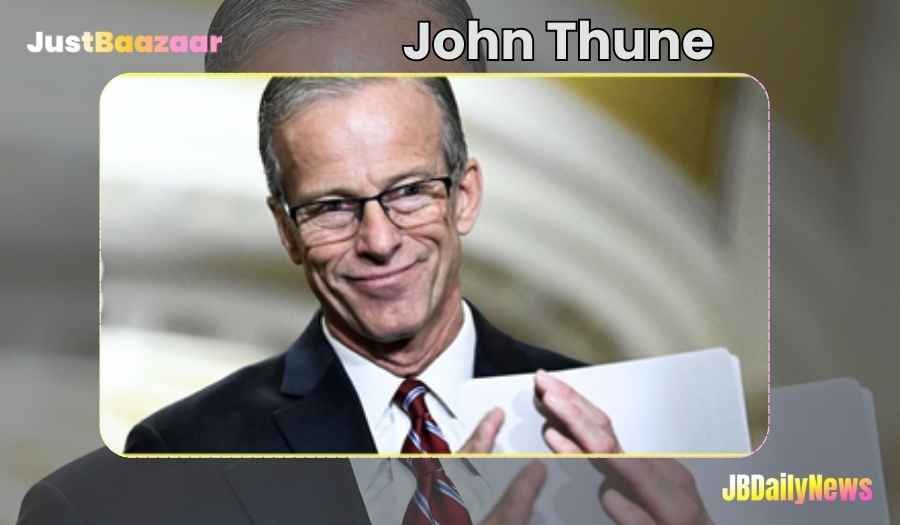In a significant development within the United States political landscape, Senator John Thune of South Dakota has been elected as the Senate Majority Leader, succeeding Mitch McConnell. This leadership transition occurs as the Republican Party prepares to assume control of both the executive and legislative branches, following President-elect Donald Trump’s recent electoral victory.
John Thune Elected Senate Majority Leader, Pledges Support for Trump’s Agenda

Thune’s ascension to this pivotal role was confirmed on November 13, 2024, after a closely contested internal election among Senate Republicans. He narrowly defeated Senator John Cornyn of Texas in a 29-24 vote on the second ballot, while Senator Rick Scott of Florida was eliminated in the first round. This outcome underscores the nuanced dynamics within the Republican caucus, reflecting a balance between traditional conservative values and the evolving priorities of the party’s base.
In his acceptance speech, Thune emphasized his commitment to advancing President-elect Trump’s policy objectives. He stated, “The incoming Senate Republican majority will work hand-in-hand with the Trump administration to lower costs for families, secure our southern border, and renew America’s energy dominance.” This declaration signals a unified front between the legislative and executive branches, aiming to implement a conservative agenda that addresses key issues such as border security, economic growth, and energy policy.
President-elect Trump extended his congratulations to Thune, expressing confidence in his leadership abilities. Trump remarked, “I look forward to working closely with John Thune to deliver on our promises to the American people. Together, we will make America stronger and more prosperous.” This endorsement highlights the collaborative relationship anticipated between the President-elect and the new Senate Majority Leader.
Thune’s election marks a departure from the longstanding leadership of Mitch McConnell, who had served as the Senate Republican Leader since 2006. McConnell’s decision to step down was influenced by a desire to allow for new leadership within the party. Thune, who has served in the Senate since 2005 and held the position of Republican Whip, brings a wealth of experience to his new role. His leadership is expected to focus on unifying the party and effectively navigating the legislative process to advance the Republican agenda.
The Republican Party’s control of both the White House and the Senate presents a strategic opportunity to enact significant policy changes. Key legislative priorities include tax reform, deregulation, and strengthening national security measures. Thune’s leadership will be instrumental in steering these initiatives through the Senate, requiring adept negotiation skills and the ability to build consensus among lawmakers.
However, Thune’s relationship with President-elect Trump has not been without its complexities. In the past, Thune has voiced criticism of Trump, particularly during the aftermath of the January 6 Capitol attack. Despite these differences, recent reports indicate that Thune and Trump have worked to mend their relationship, engaging in regular communication to align their political strategies. This reconciliation reflects a pragmatic approach to governance, prioritizing policy objectives over personal disagreements.
As the Republican Party prepares to implement its legislative agenda, Thune’s leadership will be tested by the need to balance the diverse perspectives within the party. The narrow 53-47 majority in the Senate necessitates a cohesive strategy to pass significant legislation. Thune’s ability to bridge intra-party divides and foster collaboration will be crucial in achieving the party’s goals.
In summary, John Thune’s election as Senate Majority Leader represents a pivotal moment for the Republican Party as it seeks to advance President-elect Trump’s policy agenda. Thune’s experience and commitment to conservative principles position him as a key figure in shaping the legislative direction of the United States in the coming years. The collaboration between Thune and President-elect Trump will be closely watched as they endeavor to fulfill their campaign promises and address the pressing issues facing the nation.










